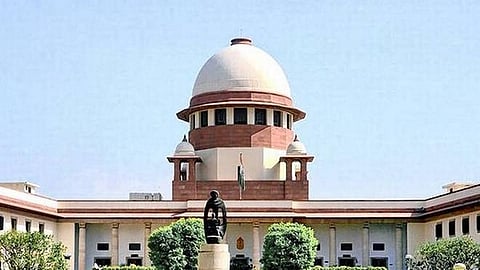

A day after the Union of India (UOI) notified and issued the rules for the Citizenship Amendment Act, 2024, the Indian Union Muslim League (IUML), a Kerala-based political party, moved the Supreme Court seeking a direction for the stay of the implementation of CAA.
It is to be noted that IUML had filed this latest petition in the SC, as its 2019 petition challenging the validity of CAA was pending disposal in the SC.
The IUML in its petition sought that the statute and regulations be stayed and that no coercive steps be taken against any person belonging to the Muslim community who has been deprived of the benefit of this law.
Sources in the Supreme Court registry and staff, said that the matter is very sensitive and therefore it would likely come up for hearing within a week ot so definitely.
The Central government on Monday in its order notified the Citizenship (Amendment) Rules, 2024 which effectively brought into force the controversial CAA of 2019.
The IUML (petitioner), which was one of the first parties to challenge the CAA before the top court in 2019, now sought stay on the Rules.
The Parliament on December 11, 2019 passed the CAA and also got the President's assent the following day.
IUML, in its fresh plea, said CAA Rules creates a highly truncated and fast-tracked process for the grant of citizenships to non-Muslim migrants from the specified countries, thereby making operational a manifestly arbitrary and discriminatory regime solely on the ground of religious identity.
"Rules are manifestly arbitrary and create an unfair advantage in favour of a class of persons solely on the ground of their religious identity, which is impermissible under articles 14 and 15 of the Indian Constitution। Since the CAA is discriminates on the basis of religion, it strikes at the root of secularism, which is the basic structure of the Constitution. India’s constitutional framework, read with obligations under the international law, mandates a framework of refugee protection that is non-discriminatory," IUML said in his plea filed before the top court.